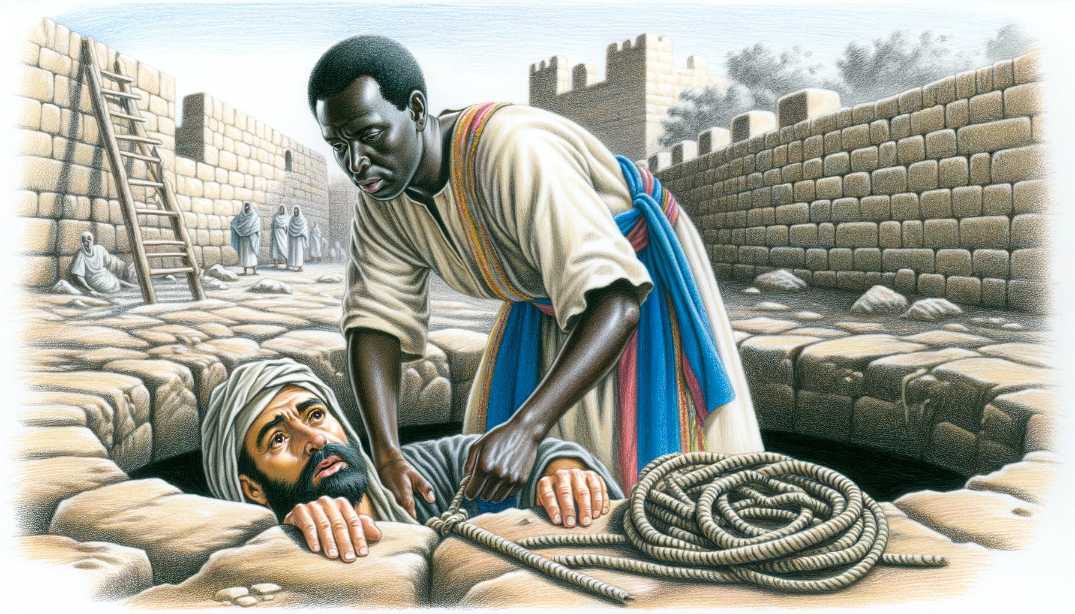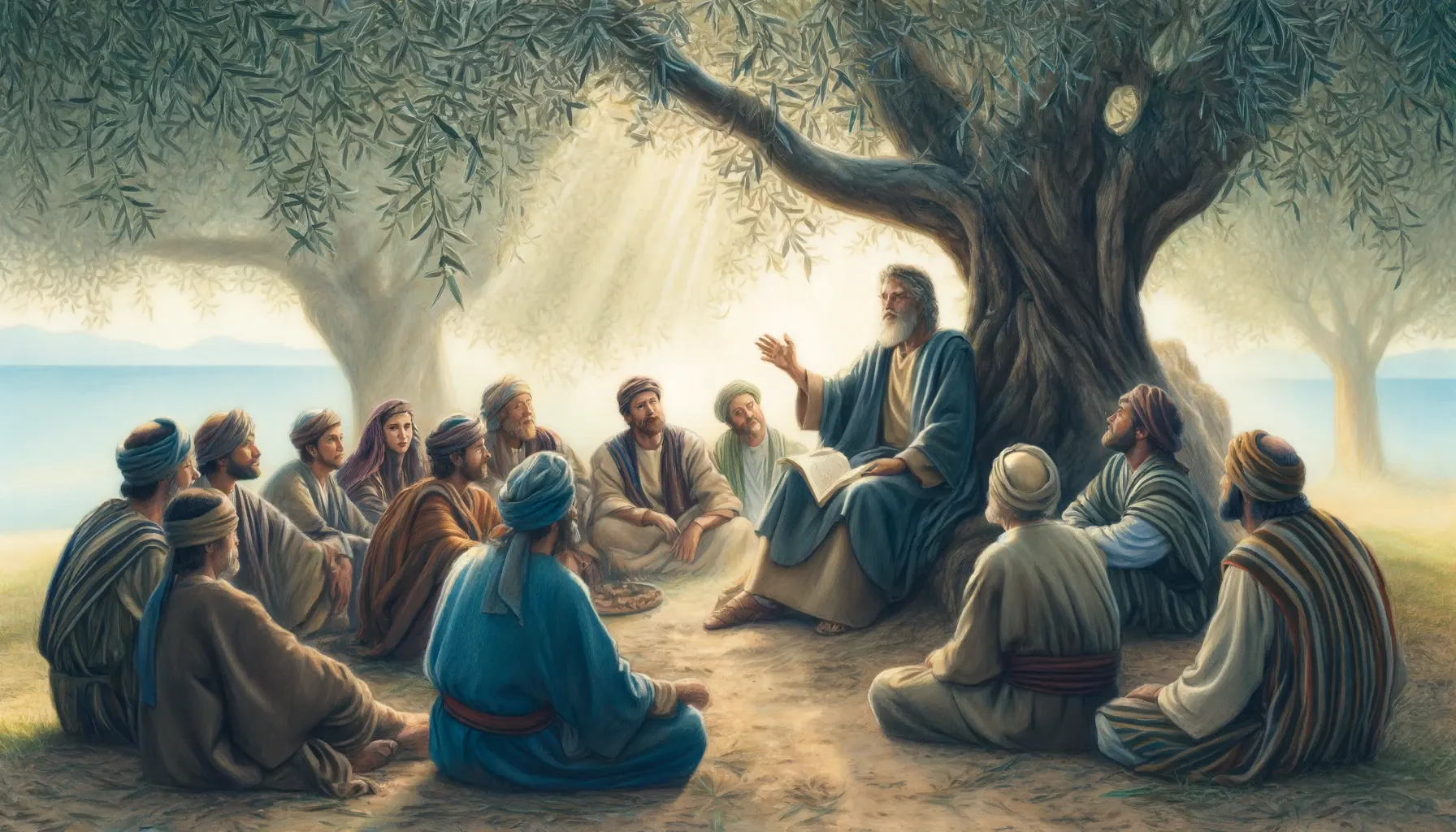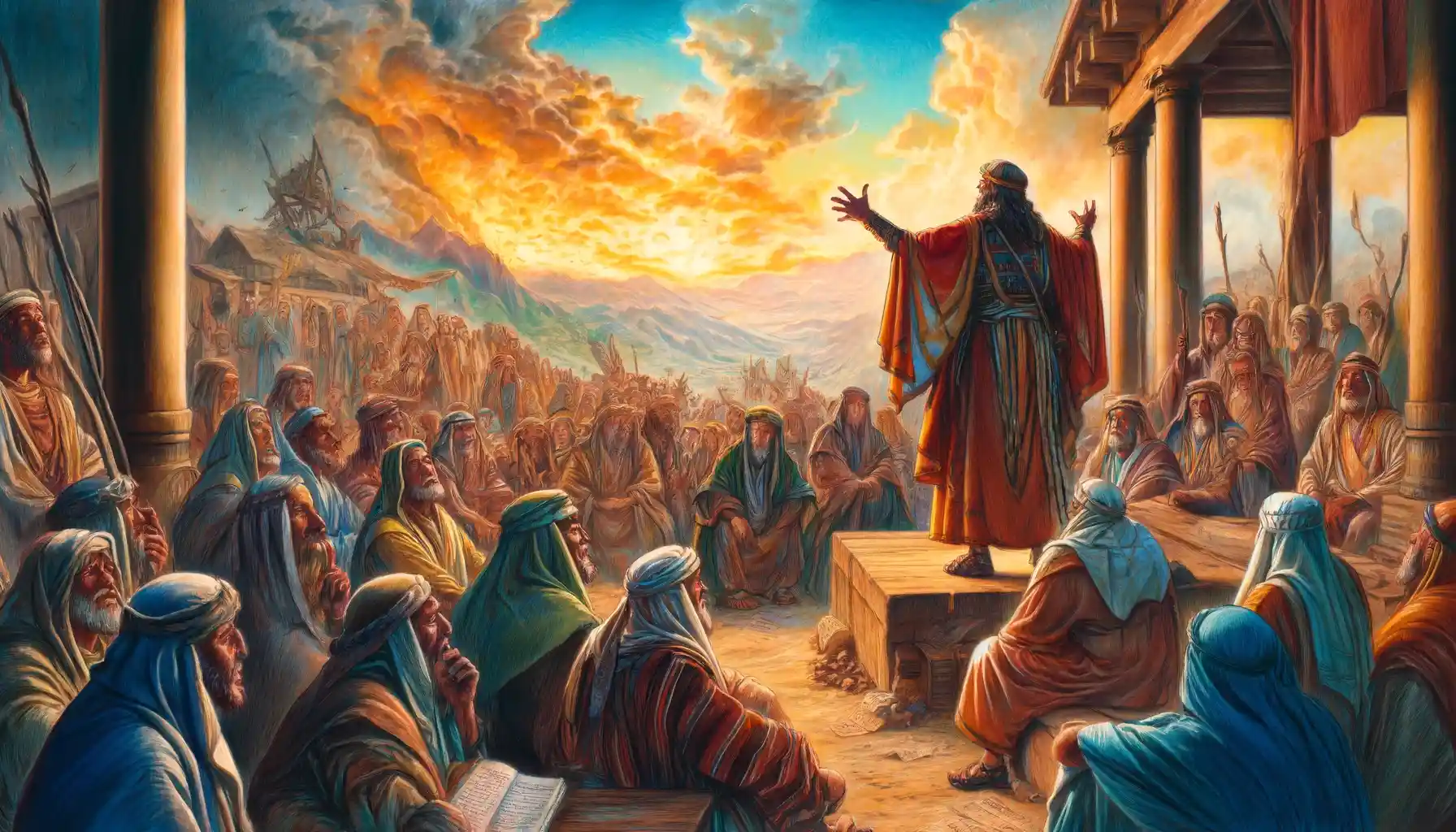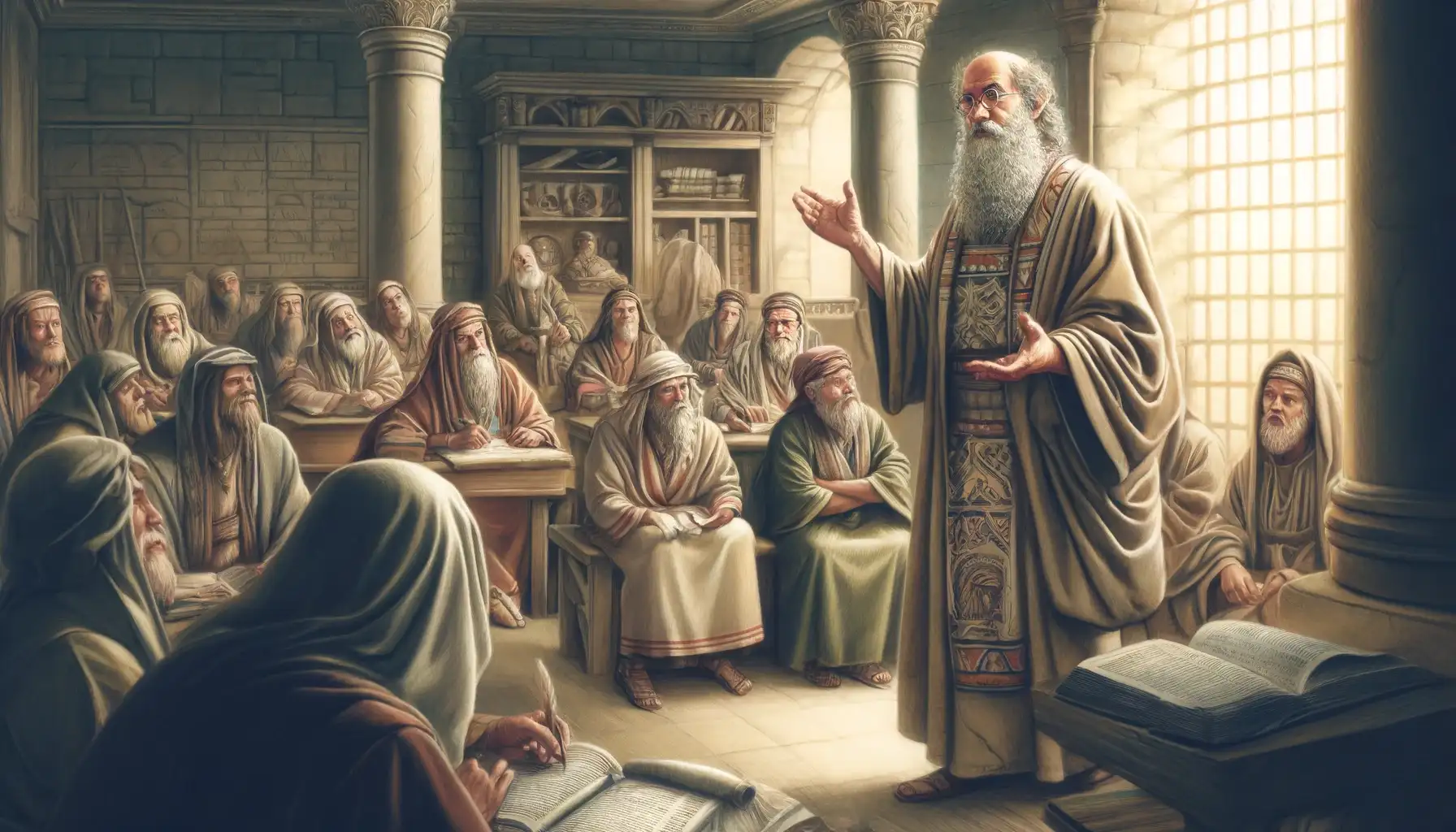Ebed-Melech, an Ethiopian eunuch in King Zedekiah’s service, bravely rescued the prophet Jeremiah from a cistern, demonstrating profound faith, compassion, and courage, which God rewarded with a promise of safety.
The Book of James emphasizes the inseparable relationship between genuine faith and practical works, urging believers to demonstrate their faith through righteous living and compassionate actions towards others.
The Book of Nahum provides a focused prophetic perspective on the theme of divine justice, highlighting the inevitable downfall of oppressive regimes that stand against God’s moral order.
Micah’s prophecies offer a blend of judgment and hope, with a strong emphasis on justice and the ethical dimensions of true faith.
The book of Obadiah’s focused message on judgment and hope offers insights into the prophetic views of justice and the restoration of God’s people.
The Book of Amos remains relevant today as a call to social responsibility and justice within religious practice.
The Book of Proverbs provides practical instructions for living a life characterized by wisdom, integrity, and righteousness, making it a valuable resource for spiritual and ethical development.
Esther’s story resonates with its dramatic narrative and profound lessons about courage, identity, and providence, making it a cherished text in religious and cultural traditions.








